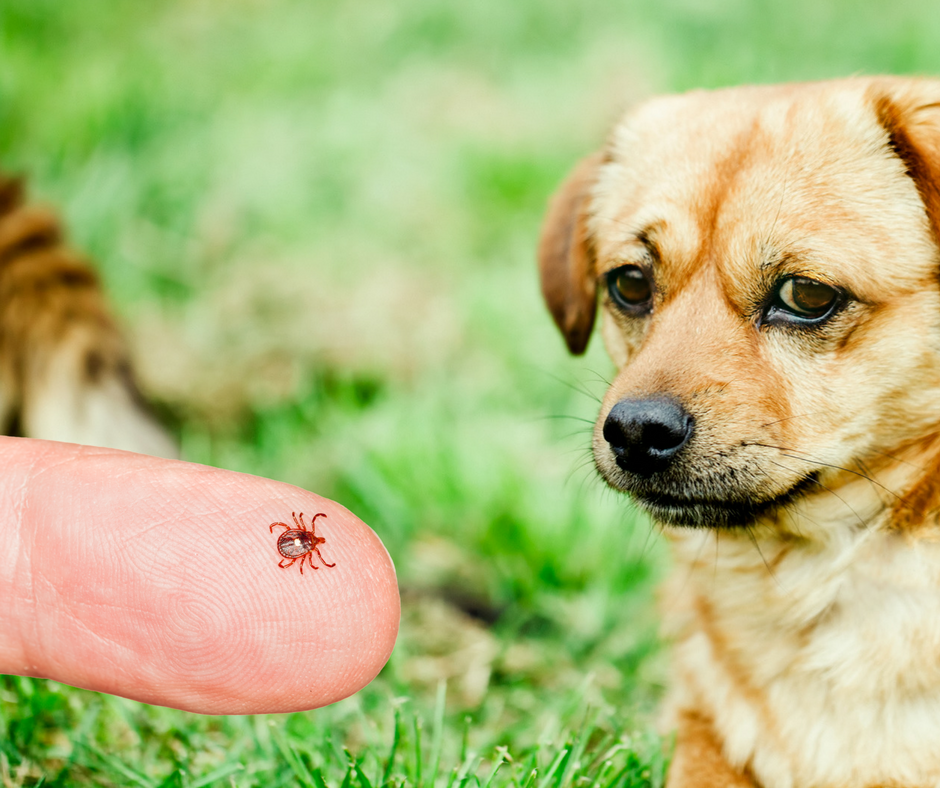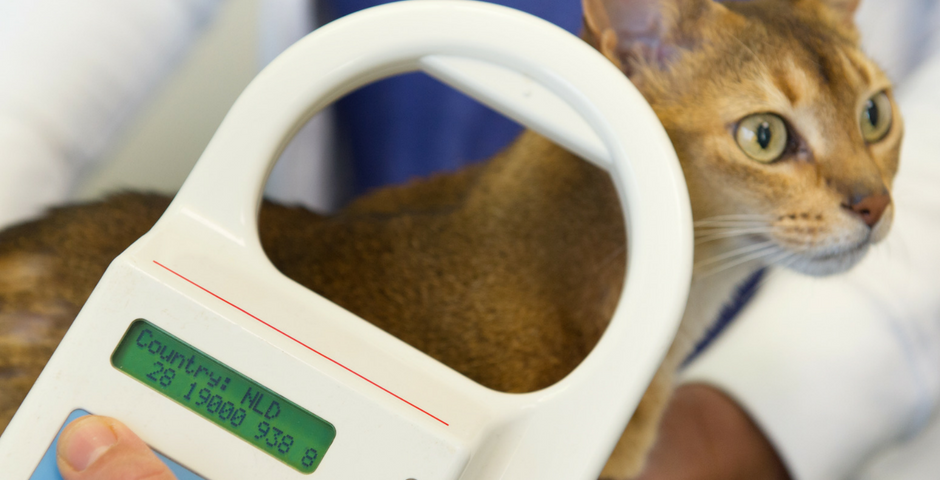
Ticks: Frequently Asked Questions
July 10, 2018
Flea & Tick Medication Label Update – FDA
September 28, 2018Microchips have become a common way for lost pets to be reunited with their owners. But how do they work? Should you be concerned about placing a microchip in your pet? At our office we get many questions about microchips. Here is what you should know about microchips and why we recommend microchipping your pet.
What is a microchip?
A microchip is a small device, about the size of a grain of rice, that is placed under the skin of your pet. Once placed, it will transmit a unique identification number via radio frequency to a microchip scanner.
Where is a microchip placed?
Microchips are placed under the skin in between your pet’s shoulders. Once implanted, there is a chance that the microchip may move slightly. If your pet has ever had x-rays it is possible to see the microchip.
How often do I have to replace a microchip?
Most microchips will last for the lifetime of your pet. They do not require a battery or power source. They also are made from biocompatible materials, so the body does not break down the microchip. In very rare circumstances, a microchip will malfunction. In this situation, a replacement microchip is recommended.
Does it hurt my pet to have a microchip implanted?
Microchips are implanted with the use of a needle and syringe. There is no need for anesthesia or pain medication in order for a microchip to be placed. Some pets may have a small amount of bleeding or sensitivity at the implant site.
What is an ISO microchip?
ISO stands for “International Standards Organization”. All ISO compliant microchips have 15 digits and can be scanned in most foreign countries. ISO microchips were designed so that if pet owners move to another country with their pet, the microchips would still scan and transmit the pet’s unique identification number. If you are moving or traveling out of the country, your pet will likely need to have an ISO microchip. There are some countries that do not require an ISO compliant microchip. If you are planning on moving out of the country it is important to know what type of microchip your pet will need.
Do I have to worry about my personal information being attached to the microchip?
Once your pet has a microchip placed, the only information it actually transmits is your pet’s unique microchip number. That microchip number is then associated with a microchip manufacturer. As a pet owner, you must register your contact information with the microchip company. There are protocols in place so that your personal information is protected by the microchip company.
Does a microchip transmit my pet’s location?
Microchips do not report your pet’s location. They are not a GPS tracker for your pet. Microchips only produce a unique identification number and are only evident if there is a microchip scanner present.
If my pet has identification tags does he really need a microchip?
Even if your pet has identification tags and a collar we still recommend having your pet microchipped. Collars and tags are removable or may fall off if your pet gets lost. Microchips are a permanent and reliable method of identification.
I adopted my pet from a shelter/rescue, how do I know if he has a microchip?
Most often, if a rescue organization or a shelter places a microchip they will pass along the paperwork and information about the microchip to you. This is so you can register your information with the microchip manufacturer. If you are not sure if your pet has had a microchip placed, please call us today to arrange a time to check your pet for a microchip.
If my pet gets lost, how does a microchip reunite me with my pet?
Many lost pets make their way to the local shelters. Once there, pets will be immediately scanned for a microchip. The microchip number is then entered into a database that will identify the specific microchip manufacturer. The shelter will contact the manufacturer who will reach out to you to let you know that your pet has been found. The American Animal Hospital Association also has a website that veterinary hospitals can use to search for a microchip number. This allows veterinary hospitals to potentially aid in reuniting pets with their owners.
Do I need to microchip my pet?
We always advise that pets be microchipped. Whether you have a dog or a cat, microchips will help get your pet home if he is ever lost. Accidents happen . . . the front door left ajar, the garage door left open, there are a million scenarios where pets get lost. Microchips are an economic, permanent form of identification. If you would like to discuss having your pet “microchipped” give us a call to schedule an appointment.

